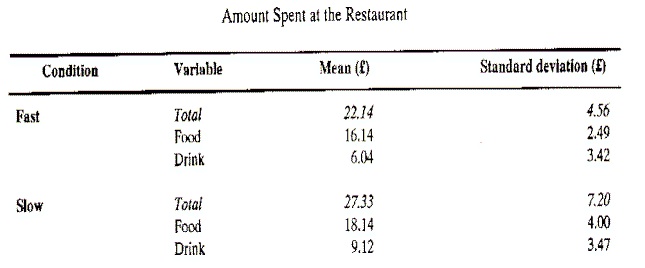How Buying Behavior Responds to Music (original) (raw)
Your 7-Eleven could be playing classical music.
There is a reason.
Buying Behavior
During a midnight visit to a Tacoma Washington 7-Eleven, you could have heard some very loud Bach. Using the same approach, large chains like Walgreen’s and smaller retailers sometimes use blaring classical music to diminish late night loitering and crime. Commenting on the tactic, one Cleveland official said, “There’s something about Baroque music that macho wannabe-gangster types hate.”
Somewhat differently, but remaining with music, researchers looked at our buying behavior. Their goal was to test how fast and slow music affected shoppers’ speed, how much they purchased, and how many noticed the music. Then, as you might expect, when the music was faster, participants’ pace accelerated and they spent less. However, most shoppers were not sure if they heard music.
In restaurants also, music affects our behavior. To see how, in one study, scholars collected data on two-seater tables that heard fast and slow music. Looking at 32 diners with fast tempo music and at 30 diners with slow music, they observed that, hearing slower music, people devoted more time to the meal.
Time:

From: “Play That One Again: the Effect of Music Tempo on Consumer Behaviour in a Restaurant”
Money:

From: “Play That One Again: the Effect of Music Tempo on Consumer Behaviour in a Restaurant”
Our Bottom Line: Nudges
Described by Nobel Memorial Prize in Economics laureate Richard Thaler and legal scholar Cass Sunstein, nudges are subliminal behavioral incentives. The default to do something automatically is considered a nudge because it makes the decision so easy that most of us do it. We also are getting a nudge when healthy food is placed at the front of a cafeteria. A bit different, the British government nudged tax scofflaws with letters saying everyone paid their taxes.
You can see why music could also be called a nudge.
My sources and more: Before identifying my sources, I wanted to emphasize that the more I checked the research, the less I became convinced that the studies I cited were definitive. Because research on the impact of fast and slow music varies considerably, as economists, we can only conclude that it does give us a nudge. However, it even depends on the day as to what that nudge will be.
Still I want to say thanks to my Hustle newsletter for inspiring today’s post. From there, a classical music station and these reports, here and here, here, and here, had more of the facts. I also hope you will return to this econlife post.

Elaine Schwartz
I am Elaine Schwartz, an economics writer, teacher, and the founder of econlife®. In so many places and ways, I have tried to make economics interesting and accessible so we could be personally, professionally, and politically knowledgeable.